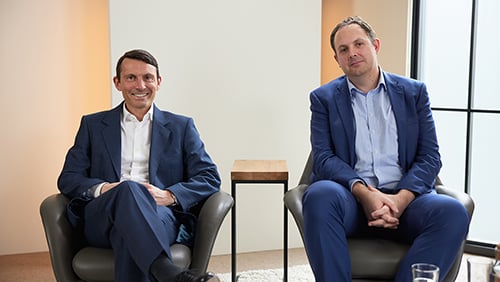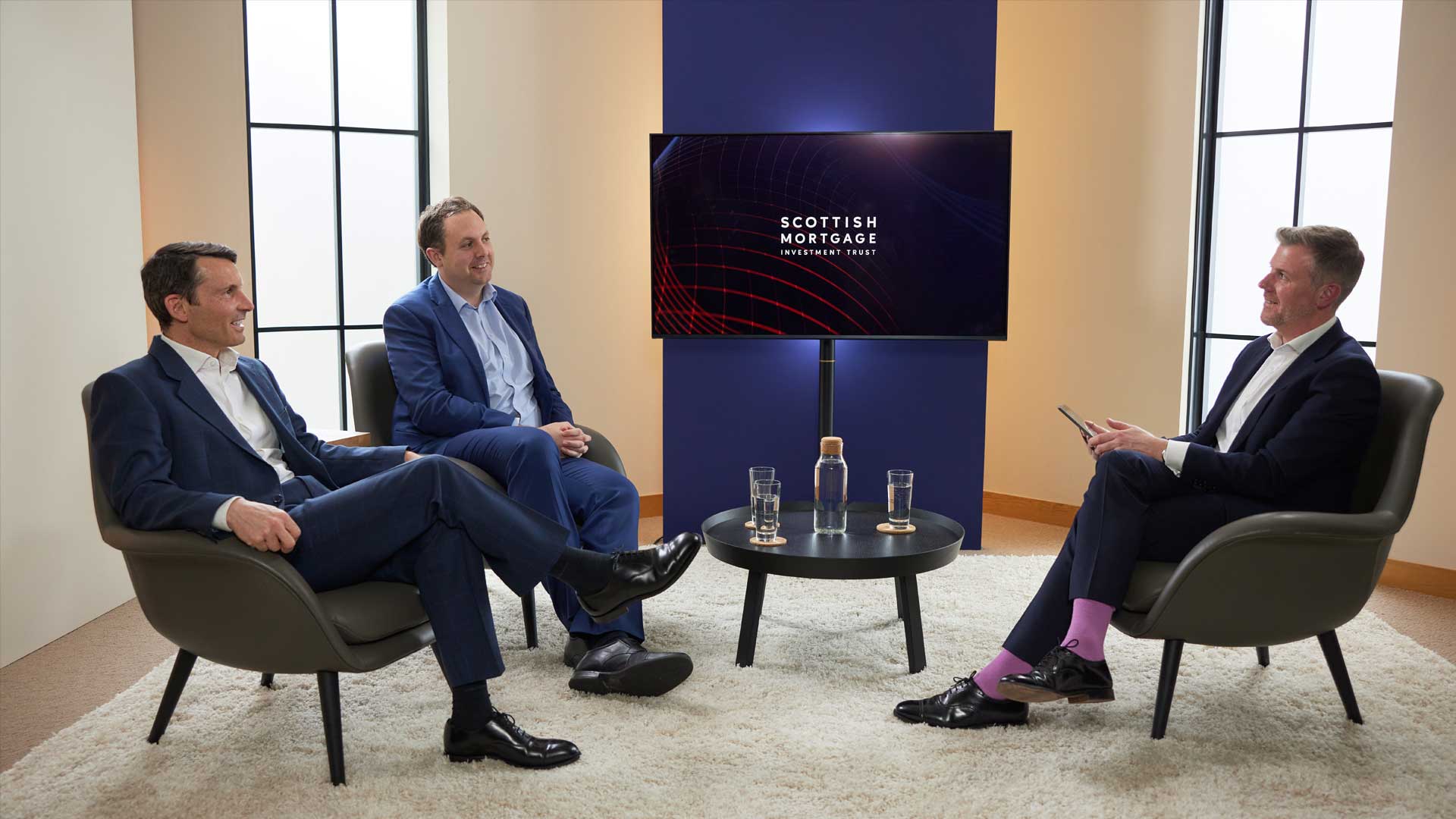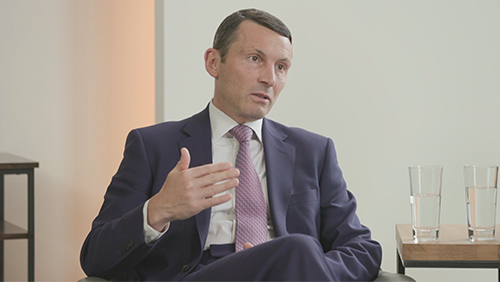December 2019
Article
The future of healthcare
The Scottish Mortgage Team
In this series of articles, we highlight companies in the Scottish Mortgage portfolio that are taking technological advances to the next level, a new generation of companies who will reshape our world and what is possible in the years to come.

The value of shares in Scottish Mortgage, and any income from them, can fall as well as rise and investors may not get back the amount invested.
The great leaps forward made in healthcare over the past 10 years have largely been driven by an explosion of data and our growing ability to make sense of it. The qualifier is important, because accumulating data sets is worthless unless they can be put to some practical purpose. It’s the reason we have been looking to identify those companies that we think will be able to utilise these novel information sets in innovative ways. The next step change in the technology-meets-healthcare journey is upon us, in which we will increasingly see more technology lead clinical decisions. Some of the companies aim to meet large unaddressed healthcare needs across the world.
Scottish Mortgage has a number of such healthcare companies in its portfolio. Many of these companies are still private, but all are earmarked by the strides they have made in using data science to support the latest advances in healthcare. By far the most important of our holdings in this area remains the listed gene sequencing company Illumina, which marked its 21st anniversary this year. Among the private companies is Illumina’s offshoot, Grail. This is a diagnostics company that is working on developing blood tests to detect cancer at an early stage. If successful, this could improve cancer survival rates by five to ten times compared with diagnosis at a later-stage, giving it a large market opportunity. Grail's test, which is premised on being able to detect circulating tumour DNA in the bloodstream, requires high clinical accuracy. This in turn requires a lot of data, a lot of sequencing and a lot of computer power for storage and analytics, making it hard for other companies to replicate.

Tempus is also using data analytics and genomics to improve cancer treatment. There are two parts to the company’s business model that we find compelling. The first is a vast database of over 2 million cancer patients’ medical records, obtained through agreements with over 50 of the US National Cancer Institute’s designated cancer centres. The largely unstructured nature of these data sets renders them all but impossible to interrogate using traditional methods, let alone then translate into improved treatment options. However, by combining machine vision with natural language processing, Tempus’ team of analysts has been able to process the records so that they are now structured, searchable and analysable.
Tempus has built the world’s largest structured dataset, combining clinical, molecular, treatment and outcome data in a way that until now medical professionals could only have dreamt of. The scale of the data makes it easier for physicians to find “similar” patients, enabling them to learn from their responses to different treatment options, thereby informing the physicians’ decisions in a real time, clinical setting. The second important aspect is Tempus’ molecular testing business. It provides genetic testing of tumours so that physicians can prescribe precision therapies. We believe that these two aspects mean that Tempus’ tools could become the standard of care, changing how patients’ cancers are treated.

Recursion, in contrast, aims to change the economics of drug discovery, reversing what has become known as Eroom’s law (i.e. the reverse of Moore’s law in computing) of exponentially increasing costs. The company hopes by combining laboratory automation with deep learning it will be feasible to conduct experimental biology at scale. Basically, it is trying to build a ‘map of human biology’, which details the effects of chemical compounds on healthy and diseased human cells. This map should help Recursion speed up the drug discovery process, while reducing costs, by being able to suggest chemical structures to return a diseased cell back to a healthy state with minimal side-effects.
HeartFlow is a medical diagnostics company. It’s technology hugely reduces the time, expense and risk to patients of diagnosing coronary artery disease (CAD), by combining cutting-edge image recognition and fluid dynamics software with the prowess of a team of human specialists. The result is cost savings for the health system and better outcomes for patients. It represents a significant improvement over the existing diagnostic tools. The technological base comes out of a 24-year partnership between Stanford Professors Charles Taylor and Christopher Zarins. HeartFlow’s ambition and opportunity is vast. CAD is one of the most common and deadliest kinds of heart disease, accounting for 13 per cent of deaths in developed countries annually. Half of people suffering from CAD die undiagnosed. By reducing costs and boosting the effectiveness of non-invasive testing, HeartFlow is leading the way towards an affordable preventative screening regime.
Risk factors
The trust has a significant investment in private companies. The trust’s risk could be increased as these assets may be more difficult to sell, so changes in their prices may be greater.
The trust invests in emerging markets where difficulties in dealing, settlement and custody could arise, resulting in a negative impact on the value of your investment.
About the author - The Scottish Mortgage Team
The Scottish Mortgage team are dedicated to servicing existing and prospective shareholders of the trust.
Important information
This communication was produced and approved at the time stated and may not have been updated subsequently. It represents views held at the time of production and may not reflect current thinking.
This content does not constitute, and is not subject to the protections afforded to, independent research. Baillie Gifford and its staff may have dealt in the investments concerned. The views expressed are not statements of fact and should not be considered as advice or a recommendation to buy, sell or hold a particular investment.
Baillie Gifford & Co and Baillie Gifford & Co Limited are authorised and regulated by the Financial Conduct Authority (FCA). The investment trusts managed by Baillie Gifford & Co Limited are listed on the London Stock Exchange and are not authorised or regulated by the FCA.
A Key Information Document is available by visiting our Documents page.
Any images used in this content are for illustrative purposes only.









